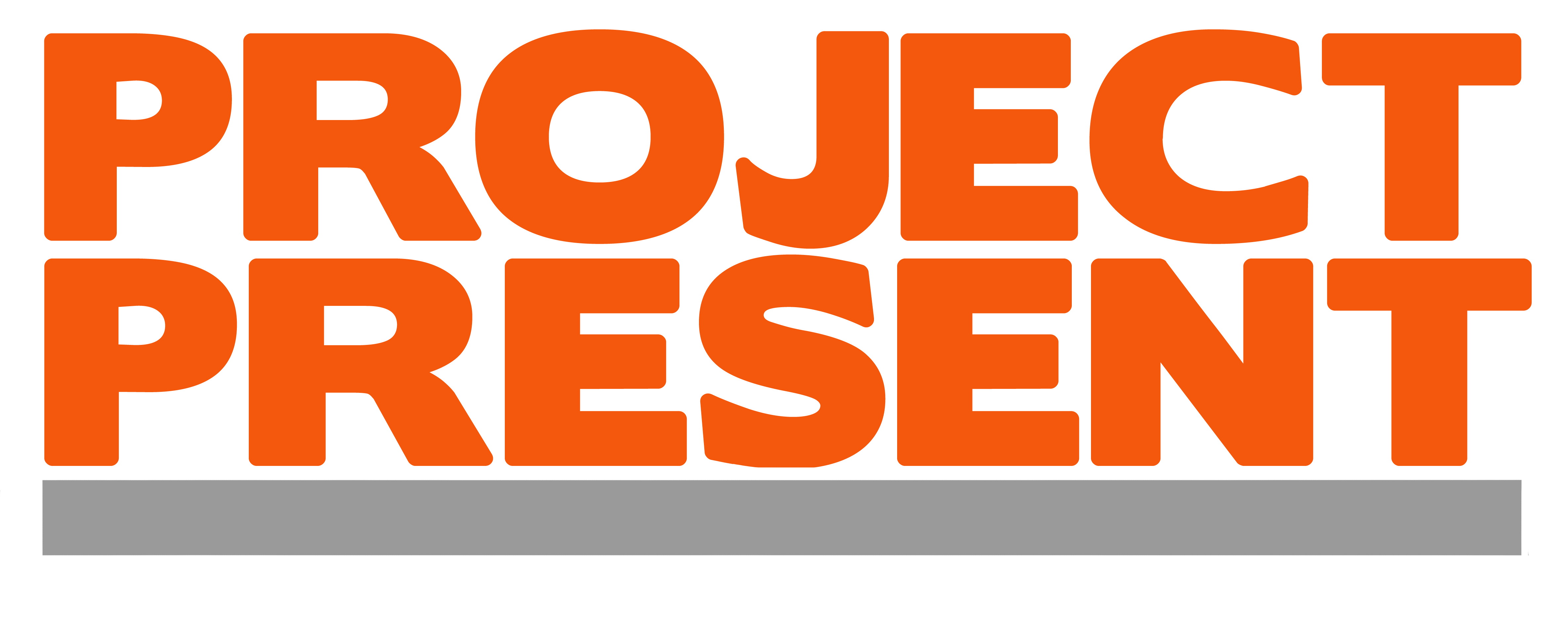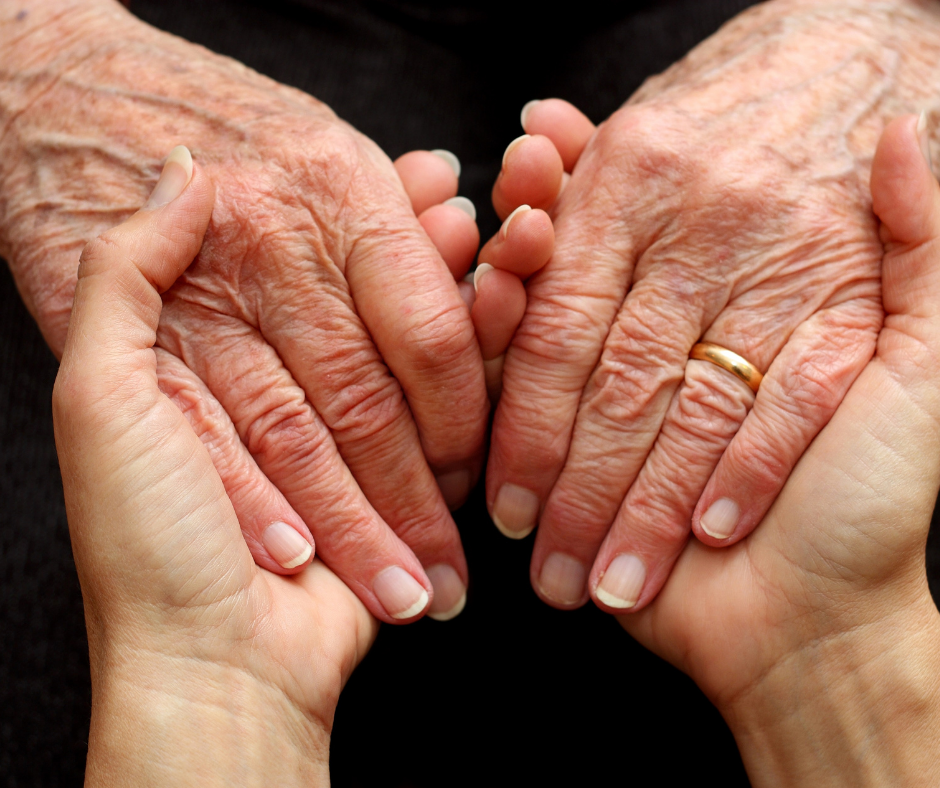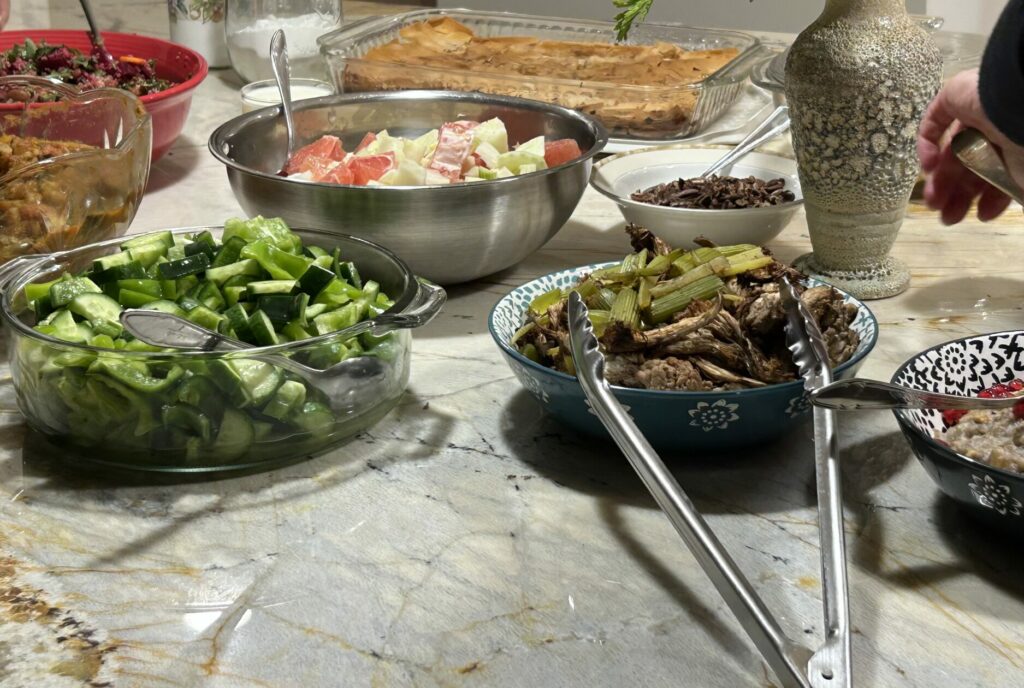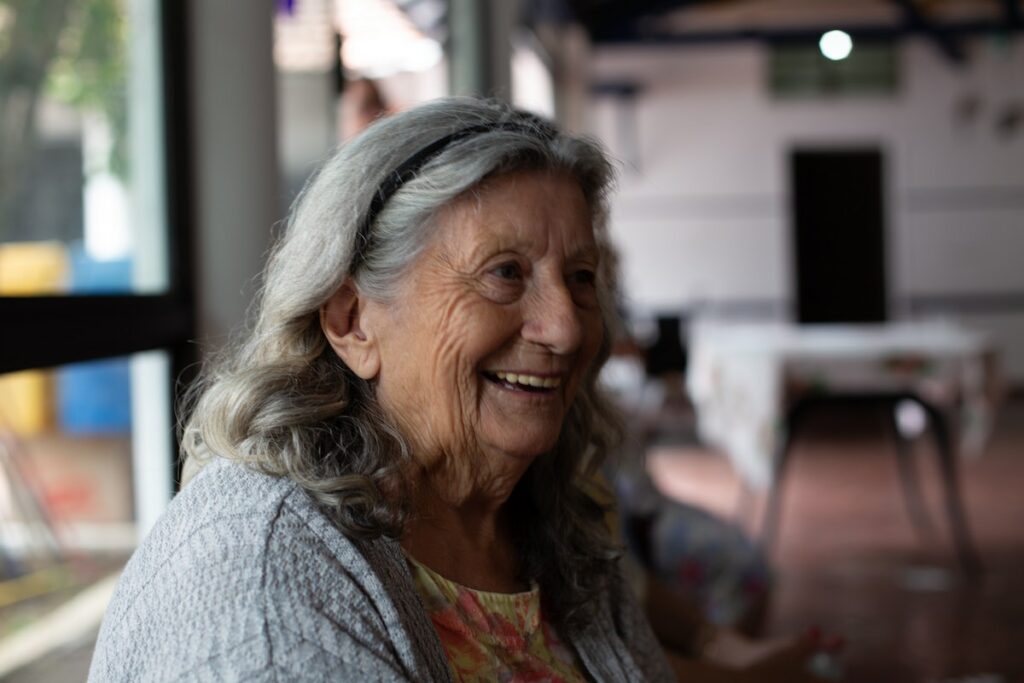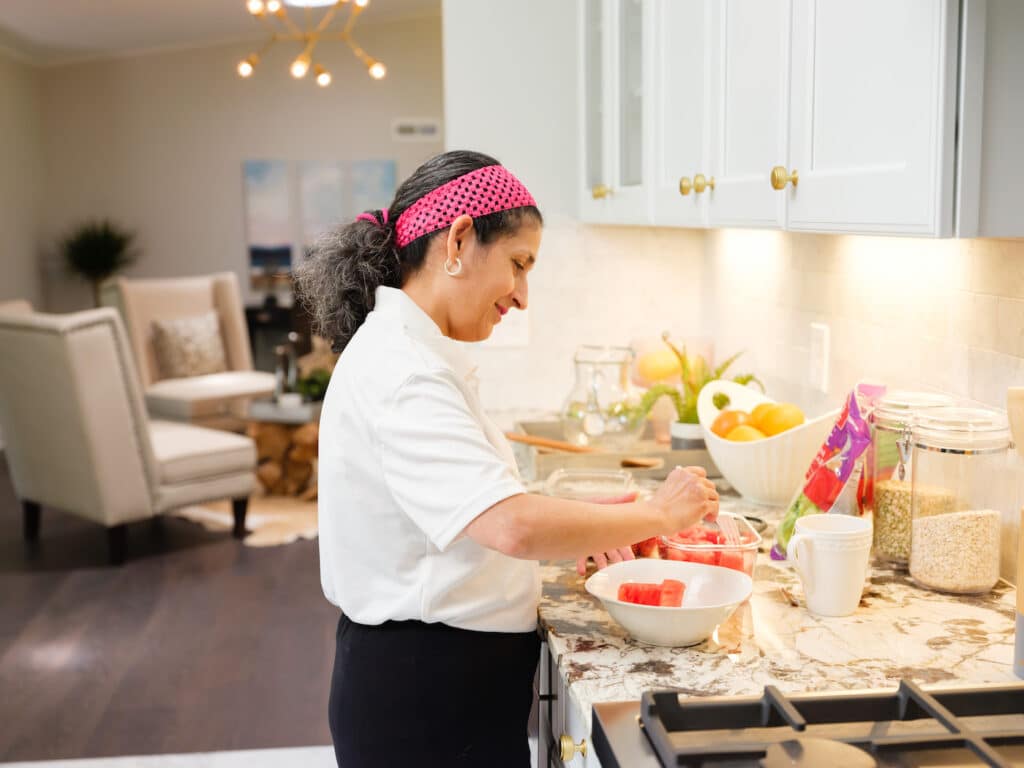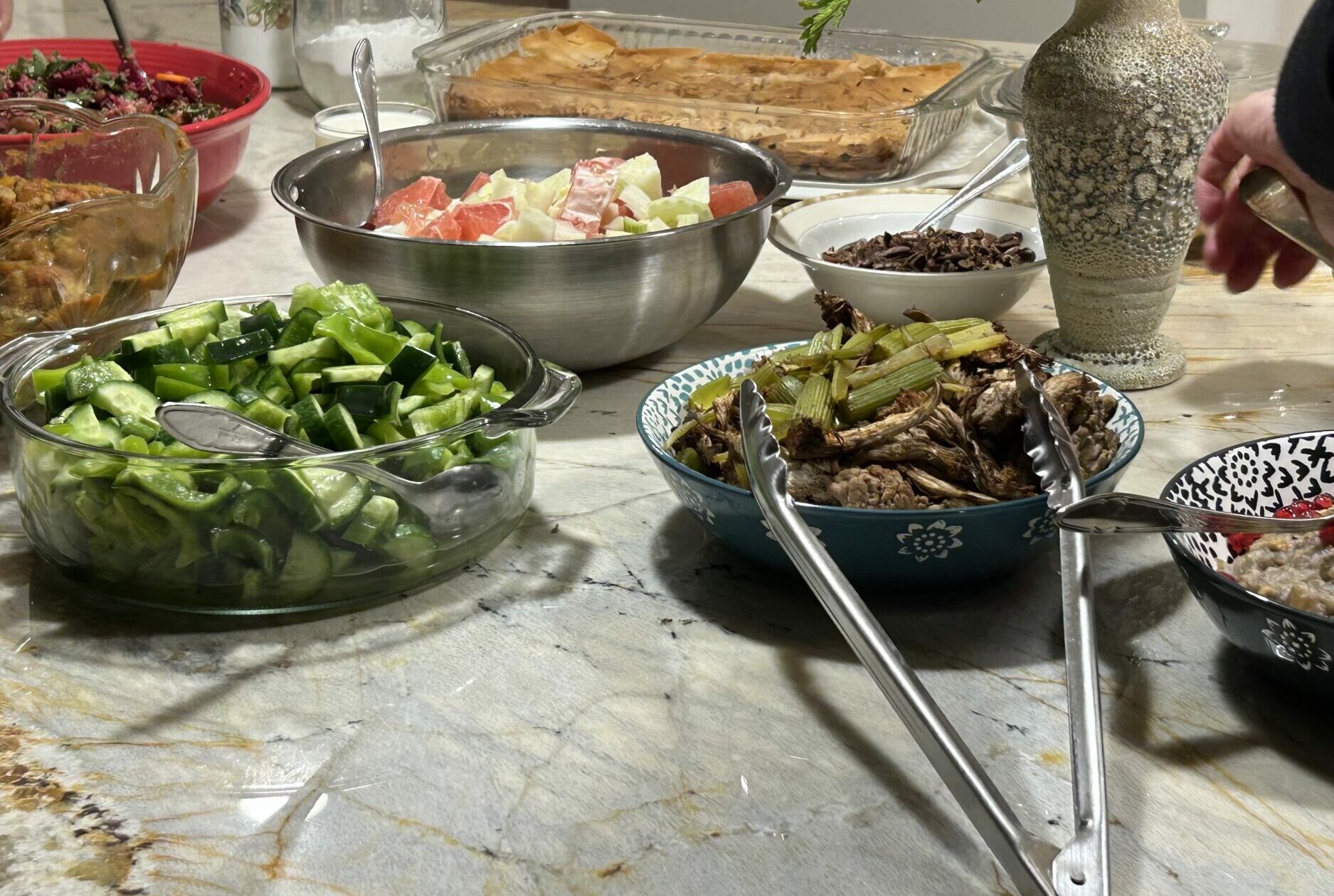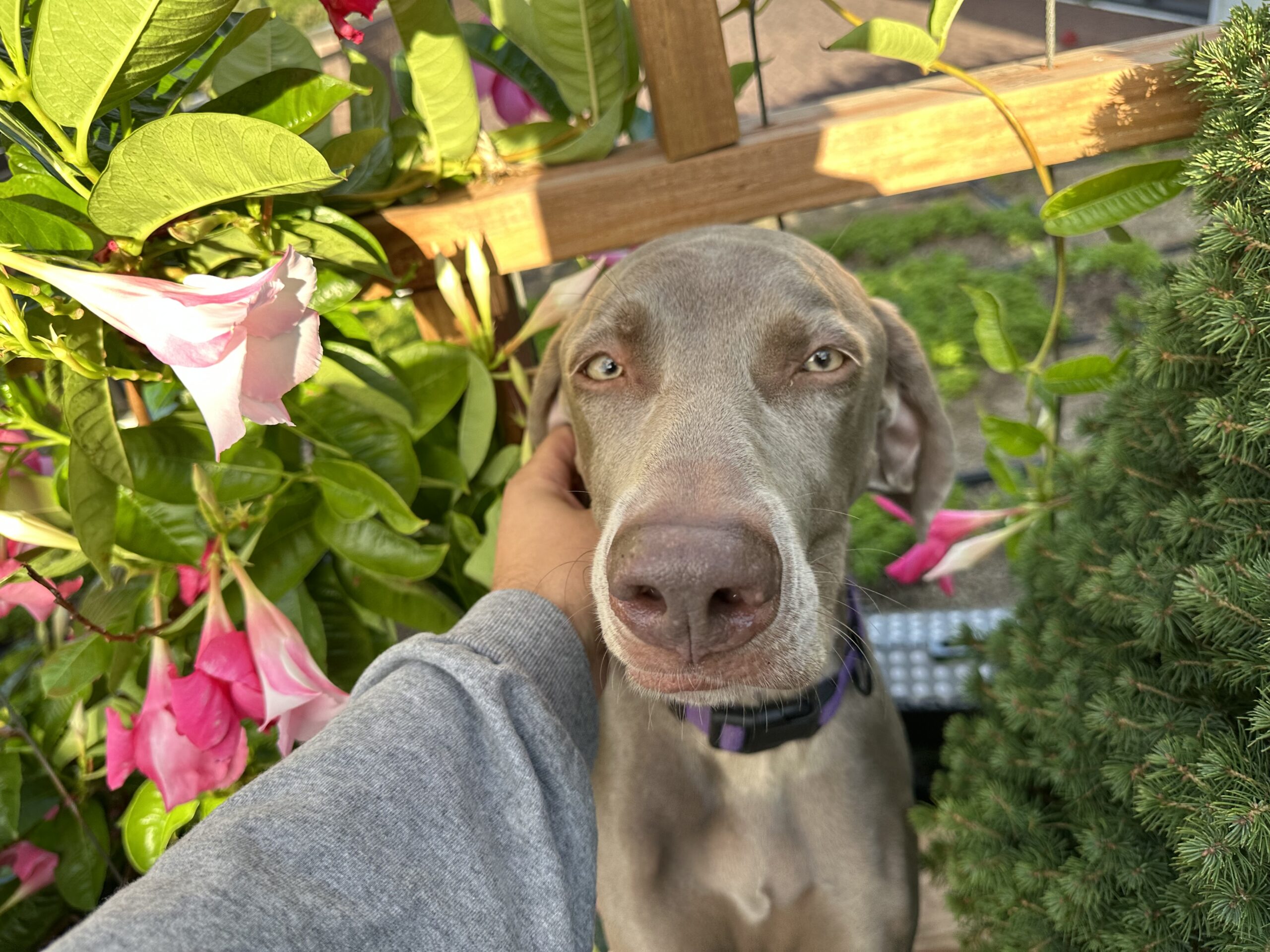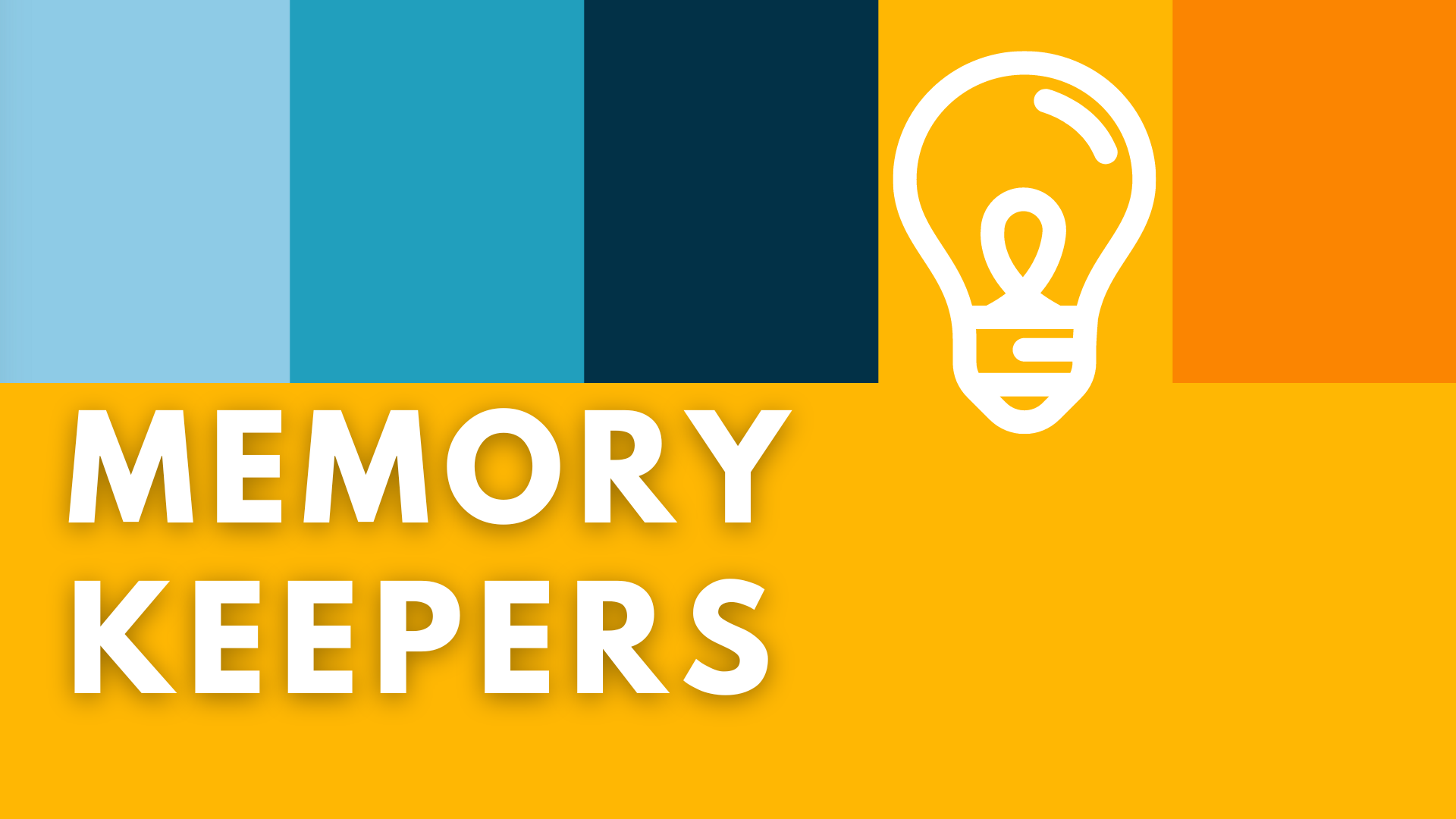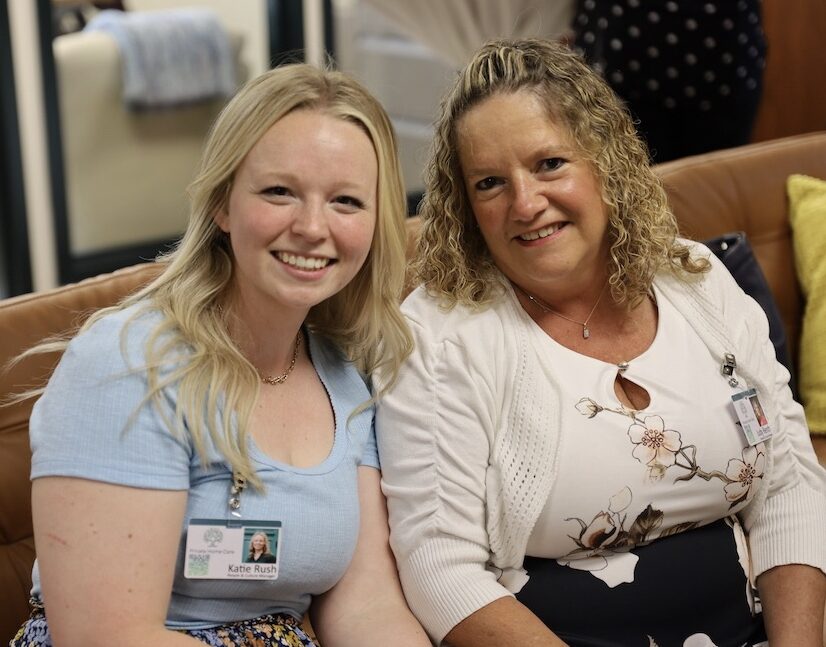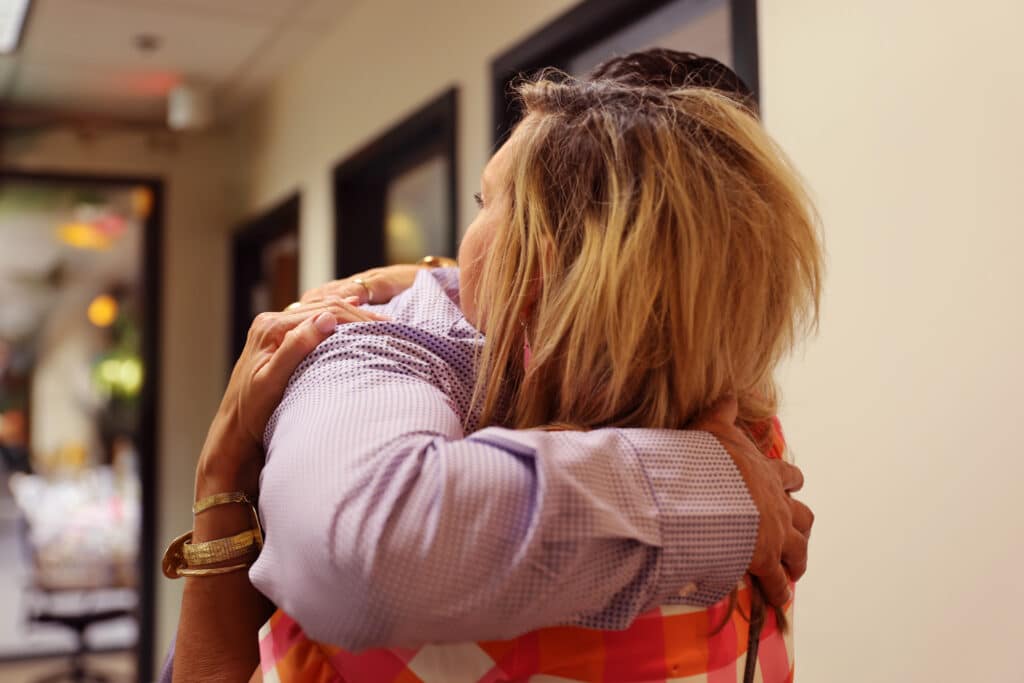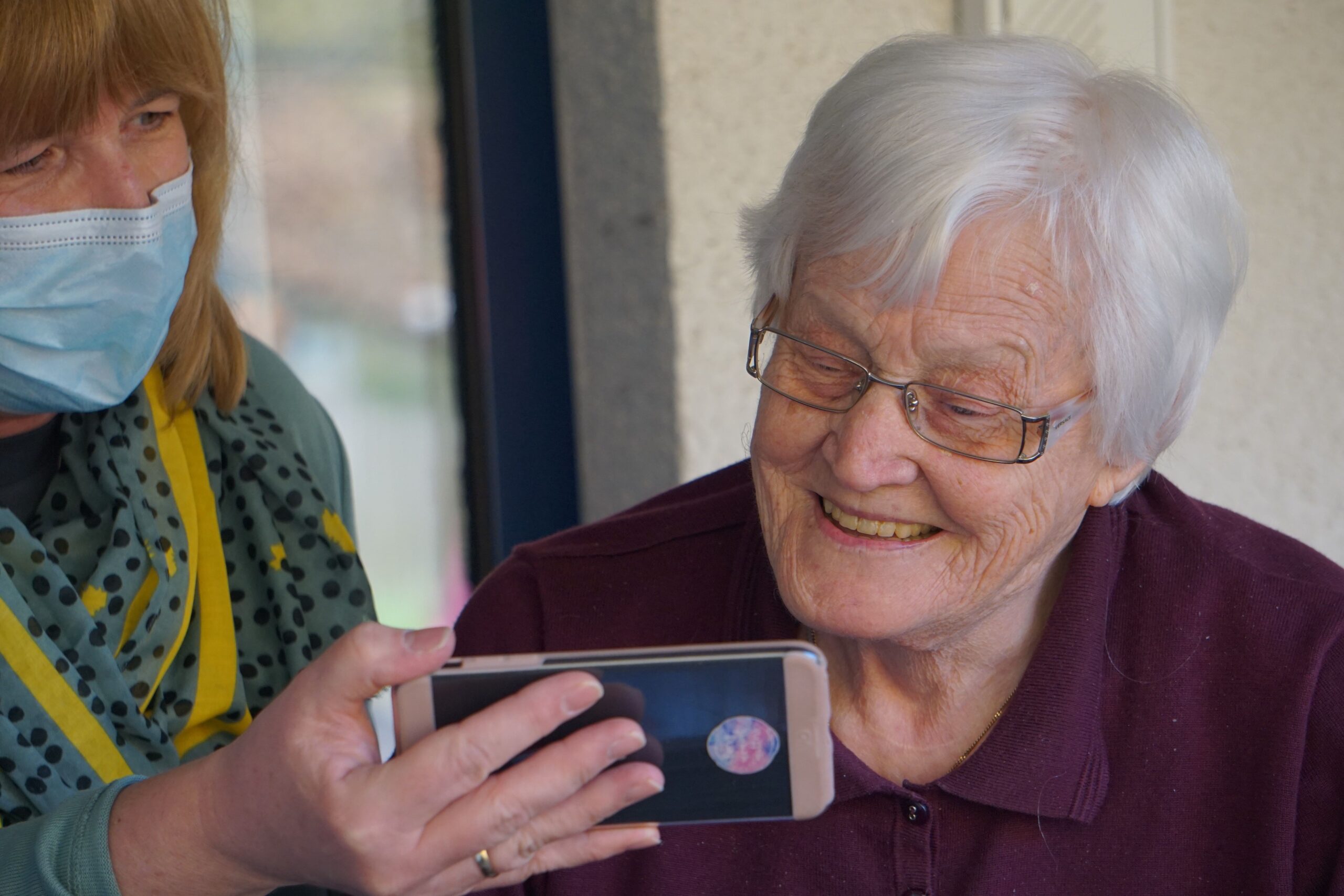What is Project Present?
Ann Marie Mohr (Executive Director) established Project Present to enhance the quality of life of individuals living with Alzheimer’s disease and related dementias. Through improv workshops, Project Present enhances communication and creativity between older adults, care partners, and individuals living with Alzheimer’s disease. For more information about the importance of nonverbal communication consider hearing from Ann Marie herself!
Who is Ann Marie Mohr?
Ann Marie Mohr founded Project Present as a 501(c)(3) organization in 2018. Mohr has her M.A. in Drama, is a Professional Applied Improv Practitioner, and a Master Interprofessional Educator. Additionally, she’s participated in Washington University’s Alzheimer’s Disease Research Center’s Clinician Partner’s Program and holds certification as a Dementia Practitioner.
Above all, Ann Marie aims to nurture connection, alleviate stress, and inspire creative solutions and collaboration. With a teaching role in Embodied Communication, Acting, and Improvisation at Washington University, Mohr applies her expertise to facilitating workshops for businesses and organizations. Mohr’s previous accomplishments include establishing OnSite Theater, where she served as Artistic Director for ten years, and Mohr Improv.
What are Crucial Communication Strategies?
Project Present emphasizes crucial communication strategies for interacting with individuals with dementia. The primary approach is to slow down both in speech and actions to ensure clarity and comprehension. With the understanding that people with dementia may require 60 to 100 seconds to process a request, it’s vital to remain patient and avoid repeating instructions in varied ways. Instead, if repetition is necessary, it should be done using the exact same wording to avoid resetting the processing time.
Mohr also advises on the importance of being specific and clear in communication without overcomplicating instructions. For instance, simply asking a partner to put on their coat should be kept straightforward without additional details that may cause confusion.
Another key point is the power of mirroring actions. If the individual has a very slow processing time, mirroring actions, like walking to the closet together to get coats, can be beneficial.
Making eye contact and ensuring face-to-face interaction can significantly enhance the connection and make the message clearer. Lastly, being cognizant of the environment is crucial; noisy or overstimulating environments can hinder communication. It’s suggested to be mindful of these surroundings to improve understanding and comprehension. Mohr concludes by noting that these strategies not only strengthen connections but also foster better understanding between caregivers and their partners.
What is the “Yes, and” Approach?
“Yes, and” is about accepting and building upon whatever scenario is presented by the other person. This approach is beneficial in caregiving as it aligns with the unique reality of a person with dementia, thus reducing stress and conflict.
For example, in improv, if an actor points out a bear climbing through the window, responding with “Yes, And it’s bringing oranges” keeps the scene alive and builds a trusting connection. Similarly, when a person with dementia expresses a desire to do something like driving, instead of saying no, using “Yes, And” to acknowledge and gently redirect the conversation can lead to a more positive outcome, such as making a list for the store together and then enjoying a cup of tea.
This technique is not about lying but about validating the individual’s experience and truth. It’s a means to maintain their dignity, reduce frustration, and enhance the caregiving relationship. Another instance might be agreeing with a person with dementia who feels they are at the beach, thus entering their reality and allowing for a meaningful, stress-free connection.
In essence, “Yes, And” is a powerful tool that can be used in various situations to foster a more supportive and less confrontational environment, ultimately benefiting both the caregiver and the person with dementia.
What else does Project Present Offer?
Beyond communication training, Project Present provides:
Transformative improv workshops across the St. Louis area, creating spaces for older adults, caregivers, and those with Alzheimer’s and related dementias to connect joyfully and collaborate creatively. These sessions, filled with laughter and acceptance, nourish the mind, body, and soul, reinforcing the belief that there are no mistakes in the art of improvisation.
Training for families and professionals who are seeking to enhance communication techniques and reduce stress. These sessions offer guidance for managing various phases of the disease and provide resources to bolster the well-being of caregivers.
Lastly, Project Present hosts support groups and creates a nurturing space dedicated to offering attentive support, effective strategies, and valuable resources that enhance the quality of life for caregivers. Project Present hosts both in-person and virtual Zoom support group sessions, and we invite everyone to participate.
Unlock Your Potential with Project Present!
Join Private Home Care’s partner in a journey where creativity meets care, and laughter is just the beginning. Connect with others, reduce stress, and spark your creative flair through our improv workshops and communication training. Whether you’re navigating the challenges of dementia or looking to enrich your caregiving skills, Project Present offers the opportunity to rekindle joy and foster meaningful interactions. Sign up now and transform your life and those you care for with the power of improvisation.
